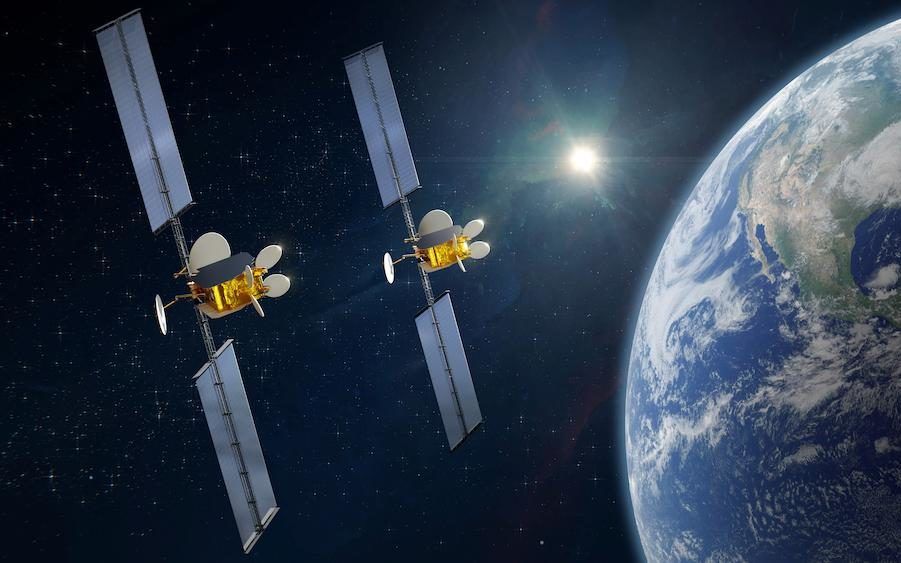
ITU’s top contributors: France
France is among the leading contributors to the annual budget of the International Telecommunication Union (ITU), with a current commitment of 21 contributory units – equivalent to nearly CHF 6.7 million (nearly EUR 6.9 million or USD 7 million) each year.
As part of this special blog series on ITU’s top contributing Member States, ITU News interviewed Frédéric Sauvage, Project Leader for Multilateral Digital Affairs at the Directorate General for Enterprise (DGE) in the French Ministry of Economy and Finance.

Since 2019, he has been responsible for France’s relations with ITU, the European Conference of Postal and Telecommunications Administrations (CEPT), and the G20, focusing on Internet governance and other multilateral and bilateral digital issues. He also chairs the ITU Council Working Group on Strategic and Financial Plans.
Why does France support ITU?
France was one of the founding Member States of ITU in 1865 and remains a top financial contributor – the fourth largest. From the outset, France has supported ITU as a unique forum for ensuring the orderly management of telecommunication and information and communication technology (ICT) resources at the international level.
In particular, the ITU Radio Regulations provide an essential legal framework for the development of space activities and radiocommunications. Thus, France has always contributed to the development of solutions by consensus and has been heavily involved in negotiations aimed at greater harmonization of the radio spectrum and achieving access for all to digital radio technologies.
Over the years, ITU has repeatedly helped to make the needs of developing countries heard, to make sure they are not left behind by the digital transformation. France is committed to supporting ITU’s efforts on the ground, especially through our operators and manufacturers, as our contribution to assisting developing countries in the field of telecommunications/ICT.
How does the work of ITU relate to your strategic initiatives in the broad field of information and communication technologies (ICTs)?
The work of ITU is strategically significant for France, especially in terms of management of the radio spectrum for mobile and satellite communications. The outcomes of the last World Radiocommunication Conference, held in Egypt in late 2019 – particularly relating to 5G deployment and spectrum harmonization, as well as refinements to the regulatory framework for low-Earth orbit satellite constellations – were significant advances for the sector.

More generally, France sees the study groups of the different ITU Sectors as unique centres of expertise for advancing the thinking on telecom applications for emerging technologies. These underscore ITU’s ability to support recent and future technological developments in telecommunications/ICT in accordance with its organizational mandate.
We remain committed to ensuring that developing countries are involved in this progress, and that ITU continues working with other organizations with relevant mandates for digital infrastructure development and the spread of digital applications.
What specific benefits do you see from your work with ITU, and which ITU activities are most relevant to your country?
In recent years, more and more French businesses, especially small and medium-sized enterprises (SMEs) but also academic institutions, have shown a growing interest in the work of the ITU study groups, viewing this as strategically important. The work of the study groups also resonates with the key priorities of the French government.
Thus, France is particularly interested in ITU’s work on the deployment of optical fibre networks (ITU-T Study Group 15), the environment and climate change (ITU-T Study Group 5), space communications (ITU-R Study Groups 4 and 7) and mobile communications (ITU-R Study Group 5).
Numbering resources, quality of service, and quality of experience are other crucial issues that underpin our operators’ ability to provide high-quality, inclusive telecommunication/ICT services, which help to bridge the digital divide especially in rural and isolated areas.

Can you provide some examples of how new and emerging ICTs are helping to drive sustainable development in your country, your region, or around the world?
ICTs are an indispensable component and a powerful lever for sustainable development, but it is important not to forget that digital technology itself has an impact on the environment.
One of our national priorities is to make development in the digital domain sustainable, in order to achieve the ecological transition.
The government has come up with an ambitious strategy entitled “Digital and Environment” (Numérique et Environnement), intended to mobilize stakeholders and bring about the convergence of the digital and the ecological transitions.
To this end, the strategy outlines concrete measures taken to (i) improve our understanding of the digital world’s impact on the environment, (ii) reduce that impact at the level of manufacturing and usage, and (iii) make digital a lever for an equitable ecological transition.
What do you see as the main ICT industry trends in France?
“France 2030” is a plan initiated by the national government in response to the COVID-19 pandemic emergency to propel French industry into the future.
An important component is the digital transition, including convergence between the digital and ecological transitions, as discussed in the context of the national digital-environmental strategy.
This rests on several key pillars. The first is the growth of industry start-ups – drivers of disruptive innovation in the key sectors of quantum computing, cybersecurity, artificial intelligence (AI), cloud computing and e-health. Another is the consolidation of France’s technological sovereignty, which includes secure access to the raw materials and electronic components that are essential to the sector.
Other pillars concern digital inclusion, digital careers training, and a rapid digital transition in the corporate sector. Bruno Le Maire, the Minister of Economics, Finance, and Industrial and Digital Sovereignty, is leading the drive, along with Jean-Noël Barrot, the Minister for Digital Transition and Telecommunications.
Which issues should ITU address as its highest priorities in the coming years?
For France, it is important that ITU be capable of meeting, at the international level, the challenges associated with the digital transformation of the world economy.
One of those challenges is the digital divide. While some progress has been made recently, too much of humanity remains marginalized, without access to essential services. This is important because high-speed connectivity is known to be a key factor in empowering populations and growing innovation ecosystems, as well as helping countries move towards technological autonomy.
We believe it should be a core priority for ITU to work at attracting people and organizations who are currently on the margins or excluded from the digital world; this should be done through information, awareness-raising, and digital skills training, in partnership with other organizations having a mandate in this area.
Another priority, already mentioned as a core goal of the French government, is the impact of digital technologies on climate change and the contribution they can make to the fight against it. This represents both a challenge and an opportunity, and we are convinced ITU can make a significant contribution here by bringing together all the stakeholders, including users, who need access to complete information to control their digital footprint.
France is particularly supportive of the work being done by ITU Standardization (ITU-T) Study Group 5, “Environment, climate change and circular economy”, which is chaired by a French national, Mr Dominique Würges.
How should ITU evolve to meet the changing needs of the ICT industry?
Uniquely within the United Nations system, ITU is open to direct participation by the industry as sector members. This is an important factor in the success of its activities and the recommendations issued by its three sectors: Radiocommunication, Telecommunication Standardization, and Telecommunication Development.
ITU has the tools and processes necessary to engage ICT industry players in its work, particularly in the domain of standards. ITU is attractive to those players because its expertise in key technical domains is highly regarded. This, the organization could further raise its international profile by focusing resources on those key domains while continuing to pay attention to emerging and future industry needs in telecommunication/ICT.
France is certain that such a shift would make ITU even more attractive to industry; there is room to further facilitate the involvement of industry players in technical work, especially via the study groups.
Furthermore, regular collaboration – covering everything from information exchanges to formalized partnership arrangements for joint work with other organizations – should be encouraged. It builds channels between ITU and those organizations to share resources and work wherever possible, which is for the benefit of the ITU membership.
Learn more in the backgrounder on how ITU is funded.
